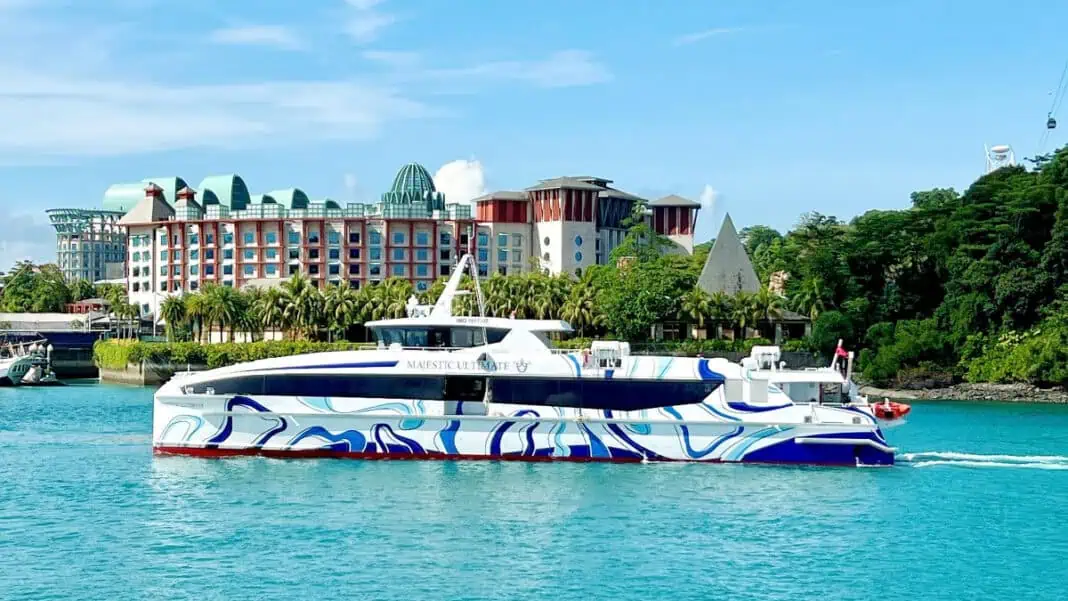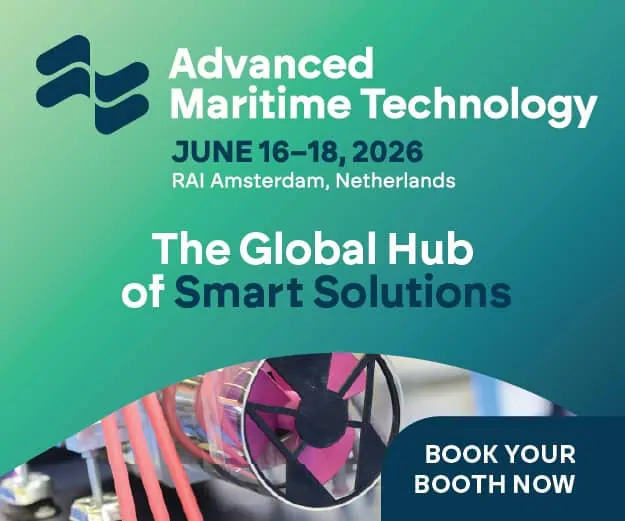Rolls-Royce has signed a Memorandum of Understanding in Singapore, to further strengthen its partnership with Majestic Fast Ferry in enabling clean, energy-efficient sailings for its current fleet of 11 ferries, fitted with mtu propulsion systems.
The event also commemorated the ferry operator’s 100th mtu engine purchased since 2016 from Rolls-Royce Solutions Asia, a subsidiary of the Power Systems division of Rolls-Royce. Majestic Fast Ferry uses mtu Series 2000 engines, with the 100th unit being the 16V 2000 M72 with a power output of 1,440 kW.
The MOU was signed by President of Global Markets Rolls-Royce Power Systems and Managing Director of Rolls-Royce Solutions Asia, Giovanni Spadaro and Managing Director of Majestic Fast Ferry, Max Tan and witnessed by President – Power Systems, Rolls-Royce, Jörg Stratmann and Board Director at Majestic Fast Ferry, Zhang Mao Xin.
The signing of the MOU reaffirms the longstanding ties and joint commitment by both companies to strengthen marine connectivity, whilst looking into alternative fuel sources to enable a greener maritime industry, according to the Power Systems strategy.
Spadaro says, “In a world where challenges are complex and interconnected and resources limited, collaboration becomes imperative. Through this MOU, we pledge to leverage our respective strengths, resources, and networks to drive innovation, foster sustainable development, and create positive impact in our communities and beyond.”
Under the MOU, Rolls-Royce will continue partnering Majestic Fast Ferry to ensure ferry services are as sustainable as possible, including the use of engines and propulsion solutions that are able to run on hybrid and renewable fuels such as Hydrotreated Vegetable Oil (HVO). This trust towards executing viable green solutions for Majestic Fast Ferry’s fleet is based on Rolls-Royce’s “reliability, fuel efficiency and performance over the number of years that made us a loyal client,” said Tan and added “Majestic Fast Ferry is currently 30% more fuel-efficient compared to our competitors. We are proud of this progress, as we continue to reduce emissions in our operations. We will certainly continue to assess and review our fuel strategy and ensure we remain at the forefront of efficiency and decarbonization.”
Changing the face of ferry travel on the Singapore Strait and beyond
Majestic Fast Ferry started with one ferry in December 2014, growing to 1.3 million passengers in 2023. As one of the youngest leading operators coming out of Singapore in a highly competitive ferry transportation industry, Majestic Fast Ferry sought to remain bold and innovative in capturing growing markets.
This led to the purchase of its first mtu engines in 2016, which delivered the best weight ratio of its class. Having Singapore and Indonesia offices for mtu engines also meant Majestic Fast Ferry could enjoy instant support and quick response-resolution times.
In 2023, as Batam grew in popularity for domestic travel, Majestic Fast Ferry started using mtu-powered vessels for its high-speed catamaran service, making it possible to serve the route more efficiently in comparison to using slower, traditional monohulled vessels.
“With an mtu-powered vessel, it is possible to carry almost double the amount of passengers compared to our previous ferry. On top of that, the mtu-powered vessels are using the same amount of fuel as before but achieving a much faster speed,” said Tan.
Director of Marine APAC, Rolls-Royce Power Systems, Chew Xiang Yu said, “The recognition from Majestic Fast Ferry is a testament of our APAC team’s dedication to customer service. At Rolls-Royce, we stand ready to partner with our customers, offering unwavering commitment throughout their journey.
Five decades to the community and industry
The Memorandum of Understanding was signed on the same day that Rolls-Royce Solutions Asia celebrated its 50th anniversary in Singapore. Serving over 30 countries across Asia, the company is supported by a dedicated team of approximately 300 employees locally, providing service solutions that play pivotal roles in the industrial, naval, governmental, commercial marine, and power generation sectors.













